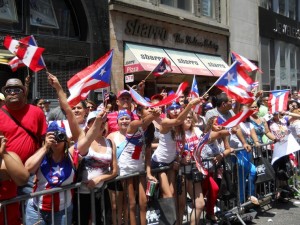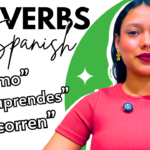
A couple of days ago, I received an email from a customer. I want to share his email with you because it illustrates a common mistake. And that’s translating everything literally from English to Spanish and forgetting that English and Spanish are two completely different languages.
Let’s say that the customer’s name is John (not his real name.) John asked me, “Patrick, how do you say medium rare in Spanish, as in a medium rare steak?”
How To Say Medium Rare In Spanish
I wrote him back and said that it depends on the country. Here in Colombia, I would say “termino medio cruda.” In Spain, they’d say “poco hecha.” In Peru, “un cuarto.” In Guatemala, “vuelta y vuelta.” In many other Spanish speaking countries, including Argentina, they would say “jugusa” which literally means juicy.
He then wrote me back and said “Gracias, but I already have the answer to my question. A Latina waitress told me that ‘medio raro’ means medium rare.”
When he wrote me back and said that a waitress told him that “medio raro” means medium rare, I immediately knew that he was NOT traveling in a Spanish speaking country and that the waitress who he spoke to was a Spanish speaker who lived somewhere in the States.
As I suspected, he was dining in a Latino restaurant in the States. A Cuban restaurant in Florida. Maybe in “Spanglish” (a combination of English and Spanish) “medio raro” means medium rare but definitely not in Spanish. And I am sure that if you use the term “medio raro” in Latin America, a waiter or waitress will have no idea what you’re requesting – unless he or she is accustomed to taking orders of food from Gringos.
“Medio raro” is a literal translation that a native English speaker would make when translating the phrase medium rare. Although the Spanish word “raro” does mean the English word “rare,” the problem is that the Spanish word “raro” does NOT mean rare in the sense of “lightly cooked.” The Spanish word “raro” means rare in the sense of “happening infrequently.”
“Medium raro” is not the only “Spanglish” phrase that I have heard used.
How To Say Call Me Back In Spanish
Growing up in “Nueva York” (New York), on numerous occasions, I heard Puerto Ricans or “Nuyoricans”– use the phrase “llámame pa’tras.” “Nuyorican” is a term that is used to refer to a Puerto Rican who was born in New York City.
The term “llámame pa’tras” is a literal translation of the English phrase “call me back.” But in the Spanish language, “one does not call one back.” In Spanish “one returns a call.” That is, “devolver la llamada.” So in Latin America, people do not say “llámame pa’tras.” Instead, they say “devuélveme la llamada” (return my call) or just “llámame” (call me).
I remember several years ago when a Colombian Spanish professor told me that she had just watched an American-made movie about a Puerto Rican family in New York City. And she said that in the movie one of the family members used the phrase “llámame pa’tras.” She thought the phrase “llámame pa’tras” was one of the most hilarious things she had ever heard in her life.
Another Spanglish word that I have heard used over and over again in New York City by Nuyoricans is “parada” in order to say “parade.” For example “parada puertorriqueña de Nueva York” (New York’s Puerto Rican Day Parade).
New York’s National Puerto Rican Day Parade
But in Spanish, “parada” does NOT mean parade. “Parada” means bus stop. The Spanish word for parade is “desfile.” For example, “desfile nacional puertorriqueño de Nueva York” (The National Puerto Rican parade of New York)
How To Say To Hang-out In Spanglish
Another “Spanglish” phrase that I have heard Nuyoricans and New York City born Dominicans use is “janguear.” “Janguear” means “to hang out.”
Oye, yo estoy aburrido, vamos a janguear.
Yo, I’m bored, let’s go hang out.
So here are 3 bits of advice:
1. When speaking Spanish, make sure that you are speaking Spanish and NOT “Spanglish.”
2. Do NOT attempt to literally translate everything from Spanish to English.
3. Keep in mind – and never forget – that English and Spanish are two completely different languages with their own set of rules of grammar and definitions of vocabulary.





